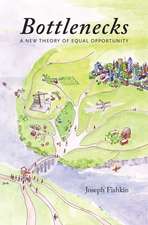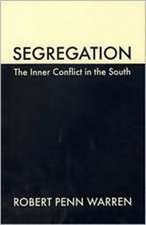Social Inequality and Social Stratification in U.S. Society
Autor Christopher Dooben Limba Engleză Paperback – 2 ian 2012
Learning Goals
- Upon completing this book, readers will be able to:
- Analyze the four major American classes, as well as how race and gender are linked to inequalities in the United States
- Understand attempts to reduce social inequality
- Identify major historical events that have influenced current trends
- Understand how qualitative sources help reveal the inner workings that accompany people’s struggles with the socioeconomic order
- Recognize the impact of social-stratification systems on individuals and families
| Toate formatele și edițiile | Preț | Express |
|---|---|---|
| Paperback (1) | 416.07 lei 43-57 zile | |
| Taylor & Francis – 2 ian 2012 | 416.07 lei 43-57 zile | |
| Hardback (1) | 1014.74 lei 43-57 zile | |
| Taylor & Francis – 21 aug 2017 | 1014.74 lei 43-57 zile |
Preț: 416.07 lei
Preț vechi: 467.50 lei
-11% Nou
Puncte Express: 624
Preț estimativ în valută:
79.61€ • 83.35$ • 65.88£
79.61€ • 83.35$ • 65.88£
Carte tipărită la comandă
Livrare economică 07-21 aprilie
Preluare comenzi: 021 569.72.76
Specificații
ISBN-13: 9780205792412
ISBN-10: 0205792413
Pagini: 408
Dimensiuni: 174 x 246 x 20 mm
Greutate: 0.75 kg
Ediția:1
Editura: Taylor & Francis
Colecția Routledge
Locul publicării:Oxford, United Kingdom
ISBN-10: 0205792413
Pagini: 408
Dimensiuni: 174 x 246 x 20 mm
Greutate: 0.75 kg
Ediția:1
Editura: Taylor & Francis
Colecția Routledge
Locul publicării:Oxford, United Kingdom
Public țintă
UndergraduateCuprins
Chapter 1 The Road to Social Inequality: A Conceptual Introduction; Chapter 2 In Marx’s Wake: Theories of Social Stratification and Social Inequality; Chapter 3 Repeat Performance: Globalization through Time and Space; Chapter 4 Foundation for Social Inequality: Concepts and Structures; Chapter 5 Heading the Hierarchy: Upper Class or Superclass?; Chapter 6 The Badly Besieged Middle Class; Chapter 7 Working Class: Estranged from Entitlement; Chapter 8 American Poverty: The Dream Turned Nightmare; Chapter 9 Racism: A Persistent American Presence; Chapter 10 Women’s Oppression: Sexism and Intersectionality; Chapter 11 Astride with the Best and the Wisest;
Recenzii
Through a historically grounded conceptual framework that explains the presence and reproduction of social stratification and social inequality, [Social Inequality and Social Stratification in US Society] analyzes the four major American classes (upper class, middle class, working class, and the poor), identifies the major historical events that have influenced contemporary social inequality, and supplements the quantitative overview of rates and trends with rich, qualitative sources that reveal how the American dream of socioeconomic uplift is really an American nightmare.
Doob pays careful attention to how American capitalism functions as a system of class and caste, with special attention to status groups, occupational mobility, income and wealth, and many other elements that facilitate stratification and limit life chances. Unlike many other textbooks on the market, which attempt a faux ‘‘fair and balanced’’ overview of various ‘‘theories’’ of stratification that attempt to explain away inequality as an unfortunate by-product of the liberal state or as a problem only of irrational, microlevel discrimination, Doob stakes his claim early on. Briefly noting Davis and Moore’s (1945) structural–functionalist theory of stratification, he moves quickly through its flaws and takes the reader on a tour de force of more critical perspectives: from Marxist critiques, Weberian ‘‘iron cages,’’ Mills’ ‘‘power elite’’ to Dye’s institutional elite, where he does not dismiss any of the aforementioned perspectives but honestly shows how each shines light on a different aspect of capital, labor, and our major social structures.
Social Inequality and Social Stratification in US Society is an excellent book for those looking to introduce young readers to the paradoxes, contradictions, and human suffering inherent in the capitalist enterprise.
Matthew W. Hughey in Humanity & Society 2015, Vol. 39(2) 258
Doob pays careful attention to how American capitalism functions as a system of class and caste, with special attention to status groups, occupational mobility, income and wealth, and many other elements that facilitate stratification and limit life chances. Unlike many other textbooks on the market, which attempt a faux ‘‘fair and balanced’’ overview of various ‘‘theories’’ of stratification that attempt to explain away inequality as an unfortunate by-product of the liberal state or as a problem only of irrational, microlevel discrimination, Doob stakes his claim early on. Briefly noting Davis and Moore’s (1945) structural–functionalist theory of stratification, he moves quickly through its flaws and takes the reader on a tour de force of more critical perspectives: from Marxist critiques, Weberian ‘‘iron cages,’’ Mills’ ‘‘power elite’’ to Dye’s institutional elite, where he does not dismiss any of the aforementioned perspectives but honestly shows how each shines light on a different aspect of capital, labor, and our major social structures.
Social Inequality and Social Stratification in US Society is an excellent book for those looking to introduce young readers to the paradoxes, contradictions, and human suffering inherent in the capitalist enterprise.
Matthew W. Hughey in Humanity & Society 2015, Vol. 39(2) 258
Descriere
Social Inequality – examining our present while understanding our past. Social Inequality and Social Statification in US Society, 1st edition uses a historical and conceptual framework to explain social stratification and social inequality. The historical scope gives context to each issue discussed and allows the reader to understand how each topic has evolved over the course of American history. The authors use qualitative data to help explain socioeconomic issues and connect related topics. Each chapter examines major concepts, so readers can see how an individual’s success in stratified settings often relies heavily on their access to valued resources–types of capital which involve finances, schooling, social networking, and cultural competence. Analyzing the impact of capital types throughout the text helps map out the prospects for individuals, families, and also classes to maintain or alter their position in social-stratification systems.













